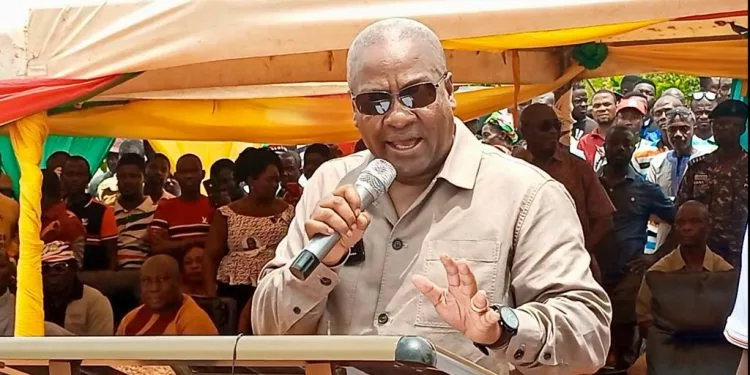This announcement underscores his commitment to promoting the arts and supporting the industry’s growth, which he believes is crucial for national development.
At a policy dialogue with the creative arts industry stakeholders held at the AH Hotel in Accra on Friday, June 7, 2024, this initiative reflects his vision of a thriving creative industry that contributes significantly to the economy and cultural heritage of Ghana.
A dedicated TV channel for creative arts will serve as a critical infrastructure for the industry. It will provide a consistent and reliable platform for broadcasting events, concerts, festivals, and other creative productions.
This will not only increase visibility for artists but also offer them a steady stream of opportunities to monetize their work through sponsorships, advertising, and partnerships.
On the digital terrestrial television, we will acquire a special channel for the creative arts. It will be an events channel. And you can display all your work there. If you have a big show like Stonebwoy is performing or Amandzeba is performing, or somebody is performing and you have a big show, or many of you are performing on a big show, we will have the technology to make that show payable. So even though it will be on the DTT, you would have to pay with the electronic, and then you will be given a code to watch,”
“The creative arts is a very important industry and has the potential to create millions of jobs. All our young people who are sitting at home, many of them are talented but there are no opportunities for them to show their talents. So if we can put the creative industry on a sound footing, it will create opportunities for many of our young people,” he noted.
Mahama also outlined strategies his administration intends to use to elevate the industry when they assume office.
(1). To make budgetary allocation for the creative arts
(2) Declare the Golden Age of Culture, Arts, and Tourism, an overarching policy for the sector: where there will be actions and modules to promote job creation and entrepreneurship.
Under this will be the BlackStar Experience, which will be one of the sub-themes to imbue Africanism in Ghanaians and encourage people to come from all over the world to see our arts, tourism, and culture.
3). Renovate Centres of Arts and Culture in the various regions.
(4). To streamline copyright modalities and IP Laws
(5). There will be film festivals where Ghanaian films will be exhibited.
(6) They will also organise art exhibitions, music shows, fashion programmes
7) There will be a special focus on drama and theatre arts: playwrights will be supported to exhibit their plays
(8) Creatives to attend international trade fairs to exhibit Ghanaian culture and arts.
(9) To pursue the dream of establishing a film village, get equipment at a low cost for filmmakers.
(10) To rehabilitate the National Theatre in Accra and build a second National Theatre in Kumasi.
(11) To acquire a special event channel for the creative arts programmes on digital terrestrial television (DTT), provide a technology that will make that show payable, so people will pay to watch.
12) To give special rates for performances at Blackstar Square, Accra International Conference Centre a,nd other venues owned by the government.
(13) Encourage the teaching of music and arts in the curriculum: provide trained teachers for such subjects.
(14) Introduce tax breaks for creative artists who have Tax Identification Numbers (TIN).
(15) Formalise a fund for aging artistes.
(16) Revive the National Festival of Arts and Culture (NAFAC)
17) In partnership with the private sector, develop all the tourist sites
(18) Revive the Marine Drive Project
(19) Provide Amusement Parks
(20) Review the tourism fund, and make sure it benefits the various stakeholders in the tourism value chain
(21) Build a new city on the banks of the Volta Region with facilities that will generate arts activities and boost tourism.
22) Hold annual stakeholder dialogue with people in the Creative Arts.









































